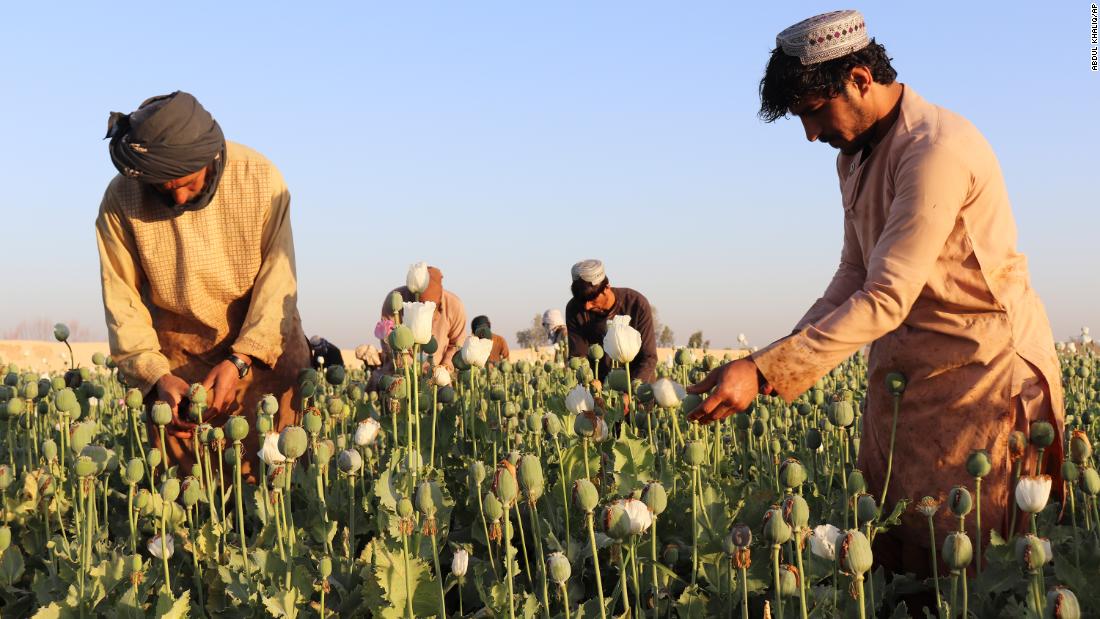“Due to the decree of the supreme leader of the Islamic Emirate of Afghanistan, all Afghans are informed that from now on the cultivation of poppies is strictly prohibited throughout the country,” said the Taliban supreme leader, Haibatullah Akhundzada, in an order.
“If anyone violates the decree, the crops will be destroyed immediately and the violator will be dealt with in accordance with Sharia law,” reads the order, announced at an Interior Ministry press conference in Kabul.
The order states that the manufacture, use or transportation of other narcotics is also prohibited.
Drug control is one of the main demands of the international community from the Islamist group, which took over the country in August and is seeking formal international recognition to reverse sanctions that seriously hamper banks, businesses and development.
The Taliban banned poppy cultivation towards the end of their last rule in 2000 when they sought international legitimacy, but faced popular backlash and later largely changed their stance, experts say.
The country’s poor economic situation has pushed residents of the southeastern provinces to plant the illegal crop, which could bring them faster and higher yields than legal crops like wheat.
Taliban sources told Reuters that they expect strong opposition from some elements within the group to the poppy ban and that the number of farmers growing poppies has increased sharply in recent months.
A farmer in Helmand, who spoke on condition of anonymity, said poppy prices had already more than doubled in recent weeks on rumors the Taliban would ban cultivation. But he added that he needs to grow poppies to feed his family.
“Other crops just aren’t profitable,” he said.

